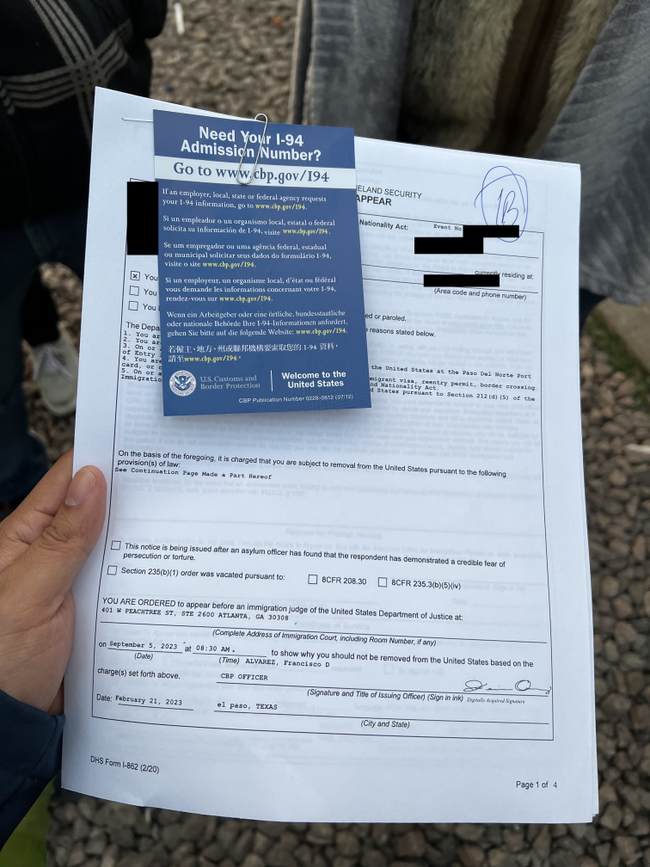EL PASO, Texas — The CBP One app has been used by the Biden administration as a tool to combat the historically high number of illegal crossings along the U.S.-Mexico border, allowing up to 30,000 Cubans, Haitians, Nicaraguans, and Venezuelans a month to set up an appointment to be allowed into the U.S. through parole.
Those of the aftermentioned nationalities caught illegally crossing the border are not allowed to be part of the program. The Biden administration has claimed progress at the southern border by pointing to the significantly decreasing number of those nationalities illegally crossing. Once processed, the immigrants are given documentation to allow them to travel to their final destination. They are given a notice to appear for an immigration judge at a future date to continue their asylum claims.
In downtown El Paso, gone are the hundreds of people sleeping out on the cold streets, which was due to local shelters not having enough space and later was the result of them not having the documentation that allowed them to use the shelters since they did not turn themselves in to Border Patrol. Instead, outside Sacred Heart Church, around 50 Venezuelans waited for the church to open its doors so they could sleep there for the night.
Those I spoke to said they had entered El Paso by using the CBP One app. They had the documentation to travel but did not have the money to continue their journey. So, for now, they are stuck, trapped in limbo as they figure out their next move.
Gabriel, an 18-year-old whose parents were still in Venezuela, said he was trying to reach Denver to go to his sister. Mike was with his wife and two small children. He asked how much an airplane ticket to New York City would cost for his family. After looking on Google, I told him it was over $1,400. One man showed me his paperwork. The documentation, complete with a pamphlet that said "Welcome to the United States," said he had to report to an immigration judge by September of this year in Atlanta. I asked him if he knew where the city was, and he said he did not. I then showed him how far away Atlanta was from El Paso on Google Maps. (By car, it's over 20 hours.)
Recommended

Townhall Media/Julio Rosas
In other instances, I have seen migrants on the street try to pass the time by talking, playing music on portable speakers, and watching their children playing with other kids.
The scene outside the church was similar to what I witnessed in December. Though the circumstances were slightly different, the end result was still the same: Migrants not having the money to leave El Paso and spending time on the streets. Granted, the scale of the issue is much better for the city to handle, but women with small children were still out in the cold during the day. There are also reports of the app constantly crashing or not working properly. The Department of Homeland Security insists it is a misunderstanding, explaining that when people think the app is broken, it tells them it has reached its daily limit, according to the Washington Post.
In the end, it feels like the situation at the border takes one step forward, only to then take two steps back. It also remains to be seen what will happen should Title 42 go away, for good this time, later this year. The other nationalities who do not qualify for the CBP One app are waiting in Mexico by the thousands for something to change.



